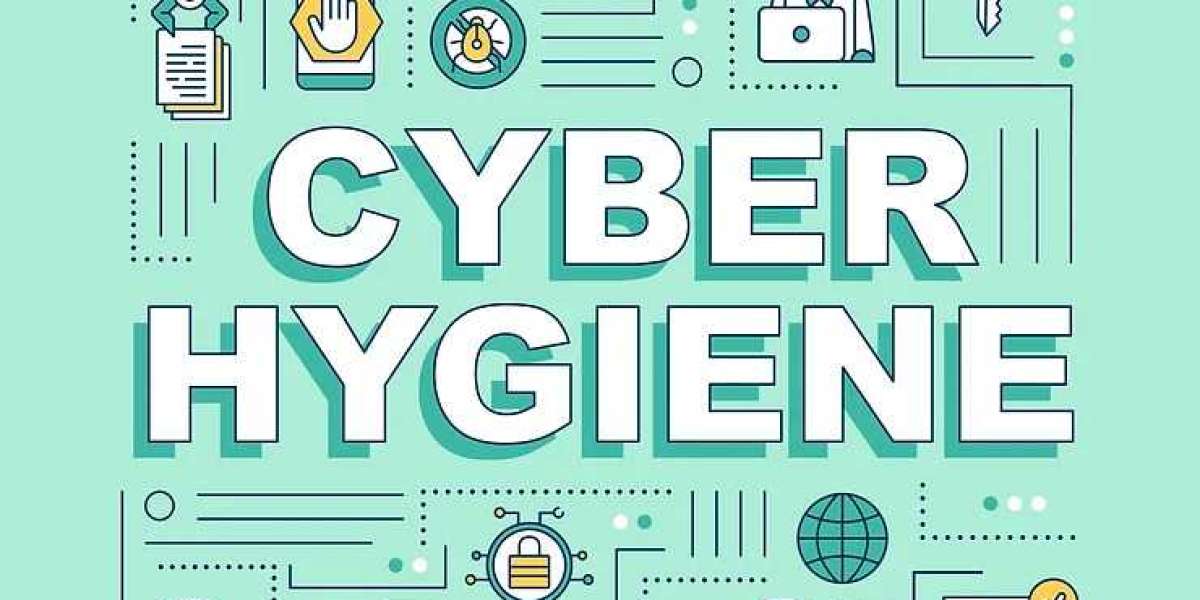Benefits of Cyber Hygiene: A Key to Robust Cybersecurity
In today’s digital age, cyber threats are becoming increasingly sophisticated, posing a significant risk to individuals and businesses alike. Whether it's data breaches, malware attacks, or phishing scams, organizations must take proactive measures to secure their networks and sensitive data. One of the most effective ways to minimize the risk of cyber threats is through implementing cyber hygiene practices. In this article, we will explore what cyber hygiene is, its numerous benefits, and the consequences of poor cyber hygiene, with a special focus on how companies like Ibovi can improve their security posture by adopting sound cyber hygiene practices.
Define Cyber Hygiene
Cyber hygiene refers to the routine practices and maintenance tasks that ensure the security and health of an organization’s or individual's digital environment. Much like personal hygiene, where regular cleaning and care are needed to stay healthy, cyber hygiene involves taking preventive actions to keep systems secure from cyber threats. These practices include keeping software up-to-date, using strong and unique passwords, installing security patches, employing firewalls, and training employees to recognize phishing attacks. The goal of cyber hygiene is to minimize vulnerabilities and reduce the potential attack surface that cybercriminals can exploit.
At its core, cyber hygiene is about building a strong security culture and embedding best practices into daily operations to mitigate risks before they escalate into major security incidents.
Cyber Hygiene Benefits
The benefits of maintaining robust cyber hygiene practices are numerous and can significantly enhance an organization’s overall cybersecurity posture. Let’s explore some of the key advantages:
Reduced Risk of Data Breaches
Regularly updating software, applying security patches, and implementing strong access controls can drastically reduce the likelihood of data breaches. Cyber hygiene practices ensure that vulnerabilities in your system are addressed before they can be exploited by hackers, thereby preventing unauthorized access to sensitive data.Improved Threat Detection
Consistent monitoring and updating of cybersecurity defenses help identify potential threats early. By practicing good cyber hygiene, companies like Ibovi can ensure their threat detection systems are always up-to-date, providing more effective responses to emerging threats such as malware or ransomware attacks.Enhanced Regulatory Compliance
Many industries have strict regulations regarding data protection, such as GDPR in the European Union or HIPAA in the United States. Cyber hygiene ensures that organizations adhere to these legal requirements, reducing the risk of penalties and reputational damage resulting from non-compliance.Lower Operational Downtime
Cyber incidents, such as data breaches or ransomware attacks, can cause significant downtime, affecting productivity and profitability. By maintaining regular updates and security measures, cyber hygiene helps prevent attacks that could lead to system outages and operational disruptions.Cost Savings
The cost of recovering from a cyberattack can be astronomical, especially if sensitive data is compromised or systems are disrupted. Proactively adopting cyber hygiene practices reduces the chances of a breach, ultimately saving organizations money on remediation, legal fees, and loss of business.Strengthened Reputation
Cybersecurity is becoming an essential aspect of consumer trust. Organizations that demonstrate a commitment to maintaining robust cyber hygiene practices signal to their customers that their data is in safe hands. This trust can be a key differentiator in competitive markets.
Poor Cyber Hygiene: A Serious Threat to Security
While cyber hygiene offers significant benefits, the consequences of neglecting it can be severe. Poor cyber hygiene practices leave systems vulnerable to exploitation, making it easier for cybercriminals to breach an organization’s defenses. Let’s look at the most common consequences of poor cyber hygiene:
Increased Risk of Cyberattacks
Without routine software updates and patches, outdated systems become a prime target for attackers who exploit known vulnerabilities. Weak passwords, lack of encryption, and poor network configurations can all contribute to making a company’s systems easier to breach.Data Loss and Financial Damage
In the absence of proper cyber hygiene, a data breach can lead to the loss of valuable customer data, intellectual property, or financial information. The financial damage from a breach can extend beyond immediate recovery costs, affecting brand reputation and customer trust.Legal and Compliance Consequences
Failing to adhere to cybersecurity regulations can result in hefty fines and legal penalties. For companies like Ibovi, poor cyber hygiene could lead to non-compliance with industry standards, putting the organization at risk of costly legal action.Damaged Brand Reputation
Cybersecurity incidents often garner media attention, and if a company is seen as negligent in protecting its data, the damage to its reputation can be irreparable. Customers are more likely to trust businesses that take proactive steps to secure their information, making poor cyber hygiene a major risk factor for losing clientele.Disruption to Business Continuity
Cyberattacks can cause severe disruption to business operations. Without regular system maintenance and security measures, an organization is more susceptible to extended downtime, data corruption, or total system failure.
How Ibovi Can Benefit from Strong Cyber Hygiene Practices
For companies like Ibovi, adopting a proactive cyber hygiene strategy is critical to safeguarding their operations and the data of their customers. Regular employee training on best security practices, routine security audits, and the use of advanced cybersecurity tools will help reduce the likelihood of a successful cyberattack. Additionally, maintaining strong password policies, implementing multi-factor authentication (MFA), and performing regular backups are essential components of a comprehensive cyber hygiene strategy.
By prioritizing cyber hygiene, Ibovi can ensure that it remains resilient against evolving cyber threats, protects sensitive information, and fosters trust among clients and stakeholders.
Conclusion
Cyber hygiene is not just a technical requirement; it’s a crucial element of any organization’s overall security strategy. The benefits are clear—reduced risk of attacks, improved compliance, enhanced productivity, and cost savings. Conversely, poor cyber hygiene can lead to devastating consequences, from data breaches to legal and financial damage. For companies like Ibovi, implementing strong cyber hygiene practices is an investment in their long-term security, reputation, and operational success.







